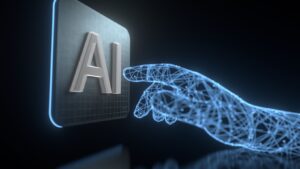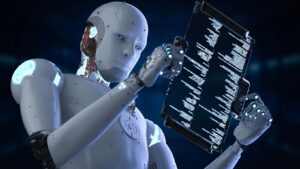Engineering Applications of Artificial Intelligence
As we delve into the realm of engineering applications of artificial intelligence, it’s evident that AI has revolutionized various industries, and 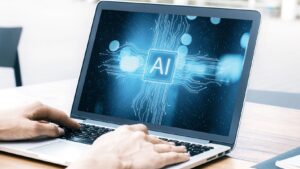 engineering is no exception. The fusion of AI and engineering has paved the way for groundbreaking advancements in automation, predictive maintenance, design optimization, and more. The marriage of these two fields continues to push boundaries and unlock new possibilities.
engineering is no exception. The fusion of AI and engineering has paved the way for groundbreaking advancements in automation, predictive maintenance, design optimization, and more. The marriage of these two fields continues to push boundaries and unlock new possibilities.
In today’s fast-paced technological landscape, engineers leverage Engineering Applications of Artificial Intelligence algorithms to streamline processes, enhance decision-making capabilities, and improve overall efficiency. From self-learning systems that optimize manufacturing workflows to predictive analytics tools that preempt equipment failures, the integration of AI empowers engineers to tackle complex challenges with precision and agility.
The synergy between engineering and Engineering Applications of Artificial Intelligence not only boosts productivity but also fosters innovation by enabling data-driven insights that drive informed strategies. As I explore the multifaceted applications of AI in engineering throughout this article, we’ll uncover how this dynamic partnership is reshaping traditional practices and propelling us into a future where intelligent machines work alongside human ingenuity to redefine what’s possible in the realm of engineering.
Overview of Engineering Applications of Artificial Intelligence
Artificial Intelligence (AI) is revolutionizing the field of engineering, offering innovative solutions and efficiencies across various sectors. Let’s delve into the diverse applications where AI plays a crucial role in advancing engineering practices:
- Smart Manufacturing: AI optimizes production processes by predicting maintenance needs, enhancing quality control, and improving overall efficiency.

- Civil Engineering: From designing infrastructure to monitoring structural health, AI algorithms analyze vast datasets to aid in decision-making for construction projects.
- Robotics: With AI-powered robots becoming more prevalent, industries benefit from automation in tasks ranging from assembly lines to hazardous environments.
- Autonomous Vehicles: Self-driving cars utilize AI for real-time navigation, object recognition, and decision-making on the road.
Incorporating machine learning models enhances predictive maintenance strategies by identifying potential failures before they occur. Additionally, natural language processing enables easier human-machine interactions for troubleshooting or data retrieval.
By leveraging AI technologies such as computer vision and deep learning algorithms, engineers can streamline complex processes and optimize resource allocation effectively. The synergy between traditional engineering expertise and AI capabilities propels innovation across diverse domains.
Major Fields Utilizing Artificial Intelligence in Engineering
Artificial intelligence (AI) has revolutionized various fields within engineering, enhancing efficiency and enabling innovative solutions to 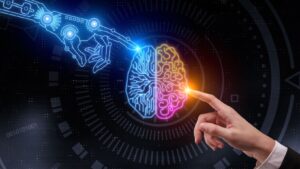 complex problems. Here are some major fields where AI is making significant strides:
complex problems. Here are some major fields where AI is making significant strides:
- Robotics: AI plays a pivotal role in robotics by enabling machines to perceive, learn, and adapt to their surroundings. From autonomous vehicles to industrial robots, AI algorithms enhance decision-making processes and improve overall performance.
- Manufacturing: In the manufacturing sector, AI optimizes production processes, predictive maintenance, and quality control. Machine learning algorithms analyze data from sensors to predict equipment failures before they occur, reducing downtime and increasing productivity.
- Civil Engineering: AI applications in civil engineering include structural health monitoring of bridges and buildings, traffic management systems, and urban planning. By analyzing large datasets, AI helps engineers make informed decisions for sustainable infrastructure development.
- Healthcare Engineering: In healthcare engineering, AI enhances medical imaging analysis, drug discovery processes, and personalized treatment plans. Machine learning models assist in diagnosing diseases accurately and identifying patterns that lead to improved patient
 outcomes.
outcomes. - Environmental Engineering: Environmental engineers utilize AI for monitoring air and water quality, optimizing waste management systems, and predicting natural disasters. AI-powered tools aid in assessing environmental risks and developing strategies for mitigation.
As technology continues to advance rapidly across different engineering disciplines, integrating artificial intelligence into traditional practices is becoming increasingly vital. The synergy between human expertise and machine intelligence propels the field of engineering towards unprecedented innovation and efficiency.
Impact of Artificial Intelligence on Engineering Processes
As we delve into the impact of artificial intelligence (AI) on engineering processes, it’s evident that AI is revolutionizing how tasks are 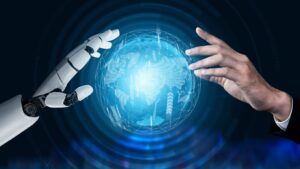 accomplished in various engineering fields. With AI technologies becoming more sophisticated, engineers can streamline complex operations, enhance efficiency, and drive innovation across industries.
accomplished in various engineering fields. With AI technologies becoming more sophisticated, engineers can streamline complex operations, enhance efficiency, and drive innovation across industries.
One significant benefit of AI in engineering is its ability to analyze vast amounts of data swiftly. Engineers can leverage AI algorithms to make informed decisions based on real-time information, leading to more accurate outcomes. For instance, in structural engineering, AI-powered software can assess building designs quickly and identify potential weaknesses before construction begins.
Automation plays a crucial role in modern engineering practices, and AI is at the forefront of this transformation. By integrating AI systems into manufacturing processes, repetitive tasks can be automated with precision and consistency. This not only boosts productivity but also reduces human error significantly.
Predictive Maintenance
AI has enabled engineers to implement predictive maintenance strategies effectively. By utilizing machine learning algorithms to monitor  equipment performance continuously, potential issues can be identified proactively. This proactive approach minimizes downtime, extends machinery lifespan, and ultimately lowers maintenance costs for organizations.
equipment performance continuously, potential issues can be identified proactively. This proactive approach minimizes downtime, extends machinery lifespan, and ultimately lowers maintenance costs for organizations.
In the realm of product design and testing, AI-powered simulation tools have become indispensable for engineers. These tools simulate real-world scenarios accurately, allowing engineers to optimize designs efficiently without physical prototypes. This not only accelerates the product development cycle but also fosters creativity by enabling rapid iterations.
Incorporating artificial intelligence into engineering processes is reshaping the industry landscape by fostering innovation and efficiency across various disciplines. As technology continues to advance, engineers must embrace these transformative capabilities to stay ahead in an increasingly competitive environment.
 In navigating these challenges and embracing future prospects, engineers have a unique opportunity to shape the trajectory of artificial intelligence within the field. By fostering innovation while upholding ethical standards and prioritizing data security, we’ll pave the way for a future where AI augments human ingenuity rather than supplants it.
In navigating these challenges and embracing future prospects, engineers have a unique opportunity to shape the trajectory of artificial intelligence within the field. By fostering innovation while upholding ethical standards and prioritizing data security, we’ll pave the way for a future where AI augments human ingenuity rather than supplants it.
In wrapping up the discussion on engineering applications of artificial intelligence, it’s evident that AI plays a pivotal role in shaping the future of various industries. From optimizing manufacturing processes to enhancing healthcare diagnostics, the impact of AI is profound and far-reaching.
As we navigate towards an increasingly automated landscape, integrating artificial intelligence into engineering practices will continue to be a transformative journey. Embracing these advancements with caution and ethical considerations will be crucial for sustainable innovation.


